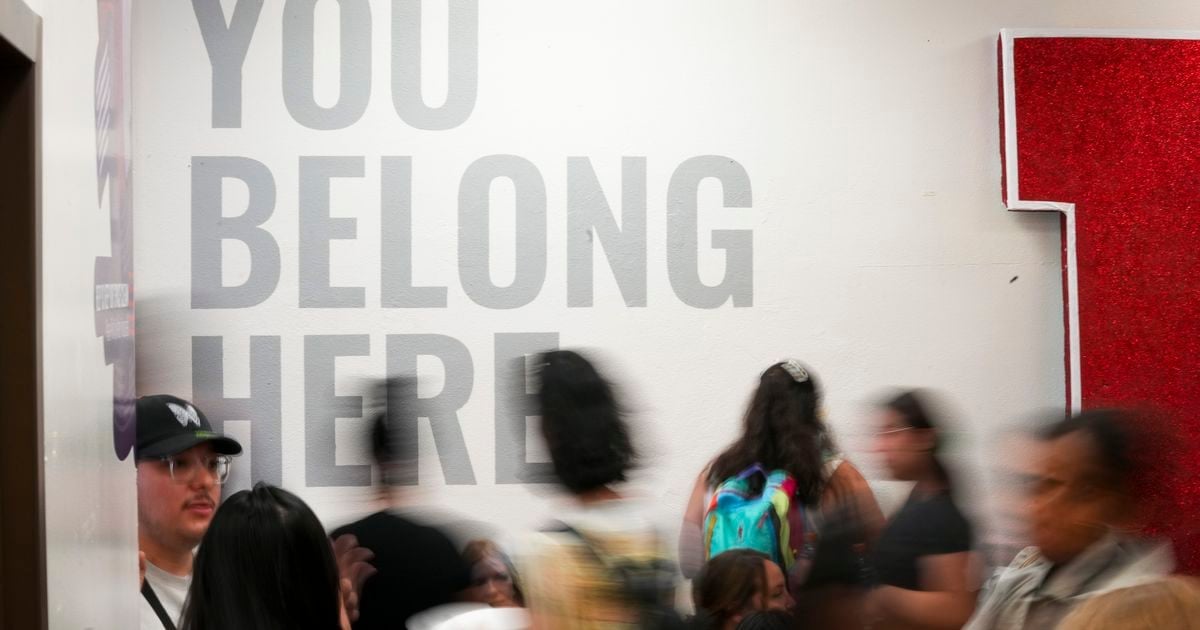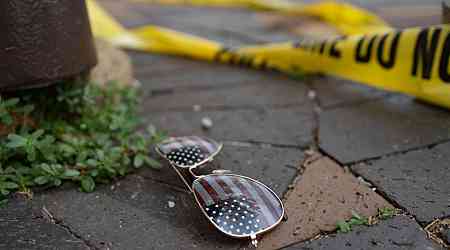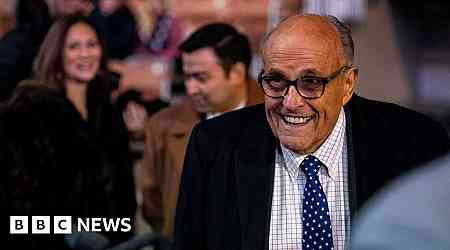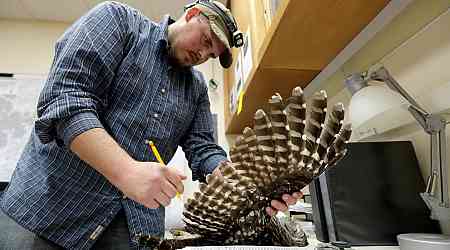Kailah Figueroa doesn’t know what she’ll do now without the student equity center she had found a home in as a freshman.
It was there that she could get tutoring and print off the papers she needed to turn in for class. It was a space she felt comfortable to hang out, waiting for her bus to head home to Glendale on the weekends. A place where she saw other students who looked like her, who are also Native, where she knew she could let go and be herself without judgment or stupid questions about teepees.
And it was the spot she always knew she could find her twin brother, napping on a bean bag chair in the back.
“But now we’re going to have to find new spaces,” said Glenn, 18.
“I don’t know where we’ll even find space, though,” Kailah said. “I just don’t know.”
The siblings debated, wondered, worried as they sat in the University of Utah’s Center for Equity and Student Belonging for the last time last week. They had found out just a few days before that the center would be permanently closing. As of Monday, the doors that had been open for 52 years were officially shut.
The closure is part of a push by the conservative-majority Utah Legislature to excise programs in public higher education around diversity, equity and inclusion, or DEI — including banning those words in office and staff titles under HB261. To abide by the new law, the U. and other colleges in the state have moved to close cultural centers.

The measure requires that schools provide resources to everyone enrolled, evenly, without any services catered to specific race or gender identities.
The quickly announced closures, though, came as a shock to many students, who thought the centers would remain open, which the law allows for, as long as the spaces are open to all. But schools have said, since they wouldn’t be allowed to offer resources at them any longer — only providing cultural education — they would not be worth keeping.
The U.— the state’s flagship institution — is also closing its Women’s Resource Center, Black Cultural Center and LGBT Resource Center. Weber State is shutting down all seven of its cultural centers. Southern Utah University and Utah Tech University are both shuttering their spaces for queer students.
Already as of last week, the employee nameplates at the U.’s Center for Equity and Student Belonging had been pried off the wall, leaving lighter-colored rectangles behind on the paint where they had been. And the staff the Figueroas and other marginalized student groups had relied on and found mentors in had been reassigned to generic “student success” positions elsewhere as the university has restructured.
Students and alumni gathered for a farewell event to say goodbye to the space last week. It was both a celebration of where they had been and a chance to mourn what would no longer be.
They signed their names in a memorial book at the front desk, “mil gracias” and “my heart is broken” in swooping cursive letters. A slideshow of photos from over the decades played on a screen. Some cried. A few hugged. Most stood quietly, burying their grief with a plate of empanadas.
“I wouldn’t have made it through the school year without this place,” said Brittany Luu, 20, a third-year student.
“It’s just so unnecessary,” added Sadie Werner, the president of the U.’s Black Student Union.
Werner teared up as her friends shared memories of how this was the only place they felt like they belonged on the majority-white campus (as is every public college campus in Utah) in a predominantly white state.

For students with black and brown skin, with last names like Jimenez or Hoang or Begay, for those who wear headscarves, they described this center as a safe haven. They don’t think that state leaders or university administrators truly grasped what it meant to them to have one place where acceptance was automatic. Here, their differences were celebrated, not stared at or questioned. A spot where they were not the minority.
“My lived experience is different. That’s just the way it is,” said Neveah Parker, a sophomore and vice president alongside Werner. “And here it was welcomed with immediate open arms. And I was given the resources I needed for my different experience.”
Parker had sought resources at three of the four now-shuttered cultural centers. At the Black Cultural Center, in particular, she found a community that looked like her and a place where she could learn more about herself.
As a student orientation leader, Parker now doesn’t feel like she can tell incoming freshmen that there’s a place like that for them.
If students experienced racism or needed support navigating the university — with students of color more likely to also be first-generation college students — they knew they could come to the centers for help. When they needed resources that others seemed to inherently know how to access. When they needed a space to breathe or cry or hide or unwind or decompress.
function onSignUp() { const token = grecaptcha.getResponse(); if (!token) { alert("Please verify the reCAPTCHA!"); } else { axios .post( "https://8c0ug47jei.execute-api.us-east-1.amazonaws.com/dev/newsletter/checkCaptcha", { token, env: "PROD", } ) .then(({ data: { message } }) => { console.log(message); if (message === "Human
























